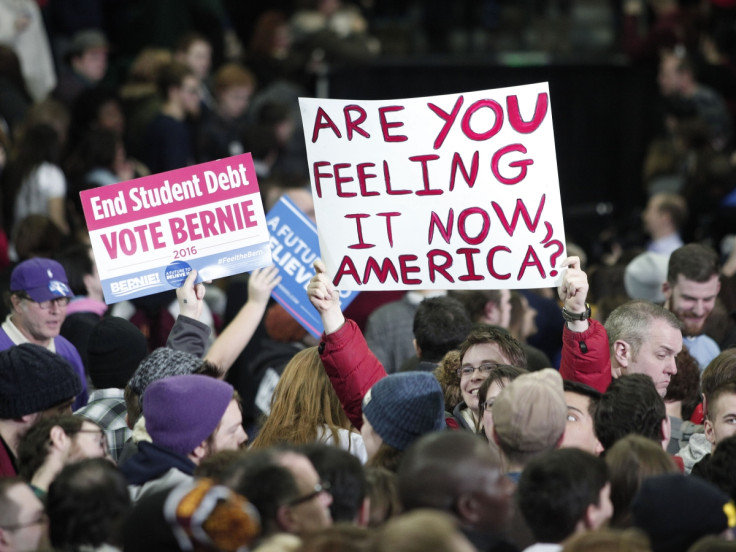US presidential election: Millennials want to see a decrease in money influencing politics

A majority of young Americans have said that they want to see an end to the way money controls the political arena in the US. Recent research revealed that 64% of millennial voters are calling for electoral reform that would "decrease the influence of money in politics", with 17% calling for improvements in the voting system.
The research was conducted by the Roosevelt Institute ahead of the 2016 presidential election to highlight policy areas that young voters care about. The Next General Blueprint report aimed to show elected officials and candidates how to "engage the largest voting bloc in the nation" and marked the launch of a national campaign by students across the country who will be challenging decision-makers to "rethink how they engage young people in the political process".
An introduction to the research stated: "The data shows that less effort is made to reach us as voters, and even when candidates do try to connect, we're only asked for our votes, not our ideas. We're active in our communities but sidelined for the decisions that shape them."
The report stated that young voters in the US wanted to see a political system that "prioritises the vote over the dollar". Despite a majority saying that they saw this as a top priority in reforming democratic access, only 28% of millennials said they believed this was a practical idea. A higher number of young people thought that improving the voting system would be more likely.
The US millennials surveyed placed education, the economy and human rights as their priority policy areas. Within the spectrum of education, young voters revealed that they were most determined to see an "overhaul of how we fund K-12 education", as well as an attempt to "decrease the burden of student debt". The report recommends allowing students to declare bankruptcy and noted that this would make it possible for them to obtain loans in the most dire financial circumstances. It noted that the policy would only cost the government $3bn (£2.15bn), "or 3% of total loans dispensed by the government each year".
A millennial surveyed in the report stated: "I think education can open many doors to opportunity and I'm afraid it is not seen as a priority anymore. School is becoming an endeavour only available to those with money. Making education affordable is definitely near the top of the list."
© Copyright IBTimes 2024. All rights reserved.






